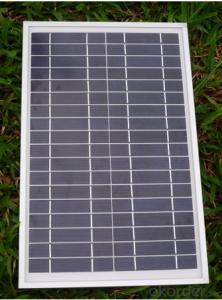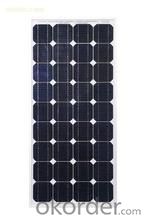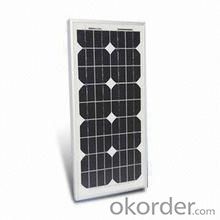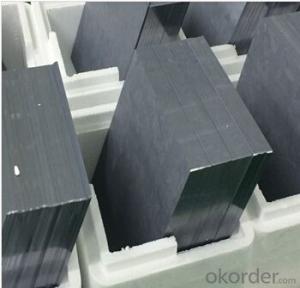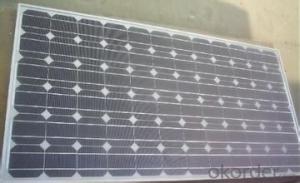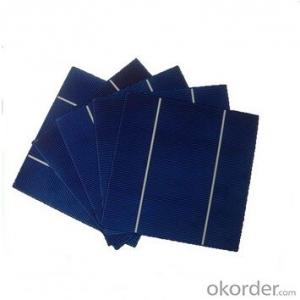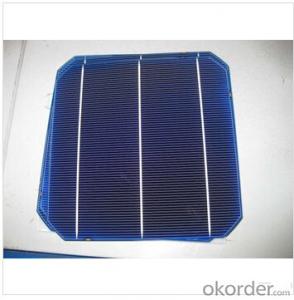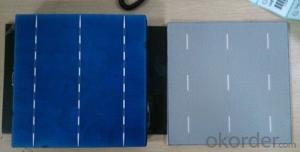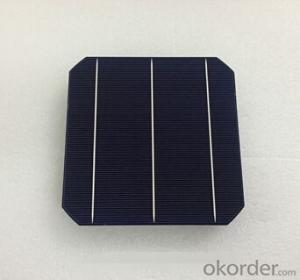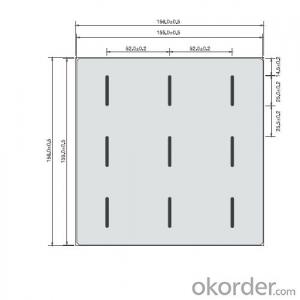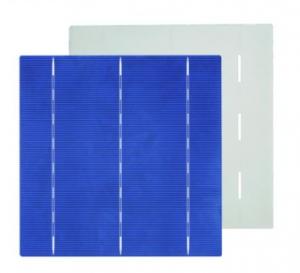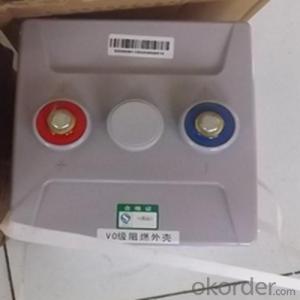6 X 6 Solar Cells 156mm*156mm Monocrystalline Silicon Modules with CE Certificate
- Loading Port:
- Tianjin
- Payment Terms:
- TT OR LC
- Min Order Qty:
- 1000 watt
- Supply Capability:
- 10000 watt/month
OKorder Service Pledge
OKorder Financial Service
You Might Also Like
Introduction
2015 Hot Sale High Efficiency156mm*156mm Monocrystalline silicon modules with TUV CE certificate.
Feather
1.High conversion efficiencies resulting in superior power output performance.
2.Outstanding power output even in low light or high temperature conditions
3.Optimized design for ease of soldering and lamination
characteristic
High effcient with stable quality and competitive price
High output with stable system
20W~25W output under standard conditions
Output Voltage 18V, suitable for 12V power system
Can fully charge up a 12V 7.2AH battery within 4~6 hours
Poly-crystallize Solar Cells from Taiwan or Germany
Product life over 25 years
Resistance to fluctuations of temperature, humidity and strong wind
Manufactured under IEC61215 Solar Photovoltaic Panel requirements
Parameter
size
156mm×156mm±0.5mm
thickness
180µm±20µm and 200µm±20µm
Front design
5 mm bus bars (silver),blue anti-reflection coating(silicon nitride)
Back design
0 mm wide segment soldering pads(silver),back surface field (aluminium)
voc ratio
-0.331%/K
scc
+0.042%/K
output ratio
-0.41%/K
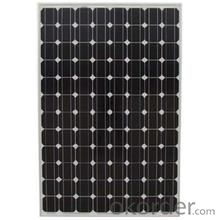
- Q: Can solar cells be used to power medical devices or implants?
- Yes, solar cells can be used to power medical devices or implants. They can provide a renewable and sustainable source of energy for various medical applications, including implants such as pacemakers, insulin pumps, and hearing aids. By utilizing solar energy, these devices can operate without relying on traditional batteries or frequent replacements, offering patients greater convenience and reducing the need for invasive procedures.
- Q: What is the difference between polysilicon and monocrystalline silicon photovoltaic cells?
- Monocrystalline silicon is made of polycrystalline silicon by a single crystal furnace, but also useful for the preparation of monocrystalline silicon melting. Polysilicon is the direct raw material for the production of monocrystalline silicon, which is the basic material of electronic information for semiconductor devices such as contemporary artificial intelligence, automatic control, information processing, photoelectric conversion and so on. Known as the "cornerstone of the microelectronics building."
- Q: Can solar cells be used in recreational vehicles?
- Yes, solar cells can be used in recreational vehicles (RVs). Solar panels can be installed on the roof of an RV to harness sunlight and convert it into electricity, which can then be used to power various appliances and systems within the vehicle. This allows RV owners to enjoy the benefits of renewable energy while traveling and reduces the need for traditional power sources.
- Q: Can solar cells be used in electric bikes or scooters?
- Yes, solar cells can be used in electric bikes or scooters. They can be integrated into the design of these vehicles to harness solar energy and supplement their charging systems. This enables them to recharge the battery and extend their overall range, making them more energy-efficient and sustainable transportation options.
- Q: How does the solar cell work in terms of photochemical conversion?
- If the incorporation of trivalent boron (B), it is in the absence of an electronic state, will produce holes, known as P-type semiconductor, the two semiconductors, known as PN junction.
- Q: Can solar cells be used in water?
- Yes, solar cells can be used in water, but they must be specifically designed for underwater use to ensure their functionality and durability.
- Q: Can solar cells be used for heating?
- Yes, solar cells can be used for heating. While solar cells primarily generate electricity from sunlight, they can also be employed in solar thermal systems to capture and convert sunlight into heat energy for various heating applications such as space heating and water heating.
- Q: What is the impact of solar cells on wildlife?
- The impact of solar cells on wildlife is generally minimal and beneficial. Solar cells produce clean energy without emitting harmful pollutants or greenhouse gases, reducing air and water pollution that can negatively affect wildlife habitats. Additionally, solar energy infrastructure typically occupies a small footprint and can coexist with wildlife habitats, allowing animals to continue their normal behaviors. However, there have been some concerns about the potential for bird collisions with solar panels and the disruption of desert ecosystems during large-scale solar installations. Overall, compared to traditional energy sources, solar cells have a much lower impact on wildlife and contribute to a more sustainable future.
- Q: What is the best way to deal with surplus solar cells abandoned after burning?
- The surplus of solar cells can be very useful or useless at all. Totally depend on how people try to apply it to the new construction work.
- Q: How do solar cells perform in areas with high levels of pollen?
- Solar cells can be affected by high levels of pollen as it can accumulate on the surface, reducing their efficiency. Regular cleaning and maintenance of the solar panels can help mitigate the impact of pollen and ensure optimal performance in areas with high pollen levels.
Send your message to us
6 X 6 Solar Cells 156mm*156mm Monocrystalline Silicon Modules with CE Certificate
- Loading Port:
- Tianjin
- Payment Terms:
- TT OR LC
- Min Order Qty:
- 1000 watt
- Supply Capability:
- 10000 watt/month
OKorder Service Pledge
OKorder Financial Service
Similar products
Hot products
Hot Searches
Related keywords
